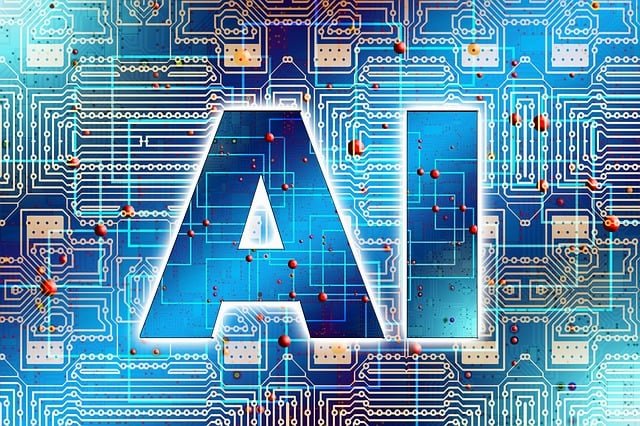As computers continue to learn, adapt, and make decisions on their own, the concept of an artificial intelligence takeover has sparked heated debate and speculation.
In this digital age, where algorithms power our social media feeds, steer our cars, and even diagnose diseases, understanding the implications of an artificial intelligence takeover is paramount.
This post aims to unravel the complexities of this phenomenon, shedding light on its historical roots, the current landscape, and the possible scenarios that might unfold in the future.
As we navigate this intricate terrain, it becomes crucial to examine both the risks and the opportunities that artificial intelligence presents, paving the way for responsible innovation and ethical practices in the age of AI.
Table of Contents
The Rise of Artificial Intelligence
Artificial Intelligence has undergone a remarkable evolution, transforming from a theoretical concept into a powerful force that permeates various aspects of our lives.

Historical Perspective on Artificial Intelligence Development
The journey of AI can be traced back to the mid-20th century, when pioneers like Alan Turing and John McCarthy laid the foundation for artificial intelligence.
Over the decades, breakthroughs in machine learning, neural networks, and computational processing have propelled AI from basic rule-based systems to sophisticated algorithms capable of complex decision-making.
Key Milestones in AI Technology
From IBM’s Deep Blue defeating a world chess champion to the advent of natural language processing enabling chatbots and virtual assistants, AI has achieved significant milestones.
The development of deep learning techniques, such as convolutional neural networks (CNN) and recurrent neural networks, has revolutionized tasks like image recognition and language translation, pushing the boundaries of what AI can accomplish.
Impact of Artificial Intelligence on Various Industries
AI’s impact is felt across diverse industries, from healthcare and finance to manufacturing and entertainment.
In healthcare, AI aids in diagnosis and drug discovery, revolutionizing patient care.
Financial institutions leverage AI for fraud detection and algorithmic trading, enhancing efficiency and security.
In manufacturing, AI-driven robots optimize production processes, leading to increased productivity and cost savings.
Moreover, AI is reshaping the entertainment industry by generating personalized content recommendations and enabling immersive experiences through virtual reality and augmented reality technologies.
As AI continues its ascent, its transformative influence on society becomes increasingly evident, setting the stage for a future where intelligent machines collaborate with humans in unprecedented ways.
Potential Scenarios of AI Takeover
The rise of AI brings with it a spectrum of potential scenarios, each raising critical questions about the future of humanity and technology.

AI in Military and Security Applications
The use of AI in military and security applications has the potential to revolutionize warfare, enabling more efficient and precise operations.
However, it also raises concerns about the ethical implications of autonomous weapons and the potential for AI systems to be hacked or manipulated.
The development of AI-powered surveillance and monitoring systems also poses questions about privacy and civil liberties.
As AI continues to advance in these areas, society must grapple with the implications and establish appropriate regulations and safeguards to ensure responsible and ethical use.
Questions about the responsible use of AI in warfare, its potential to escalate conflicts, and the need for international regulations become paramount.
The international community must come together to address these concerns and establish guidelines for the development and deployment of AI in military contexts.
It is crucial to ensure that AI systems are designed with human oversight and accountability to prevent unintended consequences or malicious use.
Additionally, efforts should be made to foster transparency and facilitate open dialogue between nations regarding the development and deployment of AI-powered weapons.
By working collaboratively, we can strive towards a future where AI enhances security while upholding ethical standards and preserving global stability.
AI in Automation and Job Displacement
One of the foremost concerns is the widespread automation of jobs.
This can lead to significant job displacement across various industries and sectors.
As AI technology advances, it becomes more capable of performing tasks traditionally done by humans, which raises questions about the future of employment and the impact on workers.
It is important for governments, businesses, and society as a whole to address this issue and find ways to adapt to the changing landscape.
Efforts should be made to retrain and reskill affected individuals and to create new job opportunities in emerging fields related to AI and technology.
By proactively addressing the issue of job displacement, we can ensure a smoother transition and a more inclusive future for workers in the age of AI.
AI-driven technologies have the potential to replace certain tasks traditionally performed by humans, raising concerns about unemployment and the need for reskilling the workforce.
Ethical Concerns and AI Decision-Making
AI systems, particularly those powered by deep learning, operate as “black boxes,” making it challenging to understand their decision-making processes.
Ethical dilemmas arise when AI algorithms make decisions impacting human lives, prompting questions about accountability, bias, and transparency.
Artificial Intelligence and Privacy Issues
AI’s ability to process vast amounts of data raises concerns about individual privacy.
Smart devices, facial recognition systems, and predictive analytics pose risks to personal privacy, leading to debates about data protection, surveillance, and the balance between security and civil liberties.
Navigating these scenarios requires careful consideration and proactive measures to mitigate risks, uphold ethical standards, and ensure that the benefits of AI are harnessed responsibly for the betterment of society.
Addressing the Concerns
The concerns surrounding AI takeover are complex and multifaceted, necessitating thoughtful strategies and collaborative efforts to address them effectively.

Regulation and Policies for AI Development
Governments and regulatory bodies play a pivotal role in shaping the future of AI.
Establishing comprehensive regulations and policies that govern AI research, development, and deployment is crucial.
These regulations should address issues such as data privacy, algorithmic transparency, and the ethical use of AI in various sectors.
Ethical Guidelines for AI Research and Implementation
Ethical guidelines are essential to guide researchers, developers, and organizations in the responsible creation and deployment of AI technologies.
These guidelines should encompass principles like fairness, accountability, and transparency, ensuring that AI systems are developed and used in ways that align with human values and rights.
Ensuring Transparency and Accountability in AI Systems
Transparency in AI algorithms is vital to building trust.
Researchers and developers should strive to create AI systems that are explainable and accountable.
Open-source initiatives, peer-reviewed research, and collaborative efforts can contribute to the development of transparent AI technologies.
Collaboration Between Governments, Industries, and Researchers
Collaboration between governments, industries, and the research community is essential to addressing the challenges posed by AI takeover.
Public-private partnerships can foster innovation while ensuring that ethical considerations and societal impacts remain at the forefront of AI development.
By working together, stakeholders can share knowledge, resources, and expertise to create a future where AI benefits all of humanity.
By focusing on regulation, ethics, transparency, and collaboration, societies can harness the potential of AI while minimizing its risks, paving the way for a future where artificial intelligence serves as a powerful tool for positive transformation.
The Future of Artificial Intelligence
As we stand at the intersection of human ingenuity and artificial intelligence, the future holds both challenges and promises, shaping a landscape where AI plays a pivotal role in various spheres of life.

Positive Applications of AI in Healthcare, Education, and Research
AI stands poised to revolutionize healthcare, assisting doctors in diagnosing diseases, predicting outbreaks, and personalizing treatments.
In education, AI-driven tools facilitate personalized learning experiences, catering to individual student needs and enhancing educational outcomes.
Additionally, AI aids researchers by analyzing vast datasets, accelerating scientific discoveries, and addressing complex global challenges such as climate change and pandemics.
Promising Advancements in AI Ethics and Safety Measures
The field of AI ethics continues to evolve, with researchers and ethicists actively working to address biases, ensure fairness, and uphold human rights.
Safety measures, including robust testing protocols and fail-safes, are being integrated into AI systems to minimize risks and prevent unintended consequences.
The Role of Humans in Guiding AI Development
Human oversight and guidance are imperative in the development and deployment of AI technologies.
Ethical AI requires the active involvement of humans in decision-making processes, ensuring that AI aligns with human values and societal goals.
By fostering a human-AI partnership, we can harness the unique strengths of both, leading to innovations that enhance human well-being and prosperity.
Balancing Innovation with Ethical Considerations
Striking a balance between innovation and ethical considerations is crucial.
While AI holds immense potential, it is essential to approach its development with a mindful awareness of its societal impact.
Responsible innovation involves continuous dialogue, research, and adaptation, allowing societies to embrace the transformative power of AI while safeguarding against its misuse.
The future of AI is inherently intertwined with our collective choices and actions.
By embracing ethical practices, fostering collaboration, and placing human welfare at the core of AI development, we can shape a future where artificial intelligence serves as a catalyst for positive change, empowering humanity to address complex challenges and create a more inclusive, equitable, and sustainable world.

Conclusion
As we conclude this exploration, it becomes evident that the path forward is one of careful consideration, collaboration, and conscientious decision-making.
We have journeyed through the historical roots of AI, its impact on diverse sectors, and the potential scenarios and concerns related to its takeover.
We have examined the ethical challenges, the need for transparent practices, and the crucial role of regulations in guiding AI development.
Individuals can stay informed, ask critical questions, and advocate for ethical AI practices.
Organizations can invest in research and development while upholding ethical guidelines, ensuring that AI technologies are developed for the benefit of humanity.
Policymakers play a central role in crafting regulations that foster innovation while safeguarding societal values and human rights.
In closing, the evolution of AI is not a narrative of machines replacing humans; rather, it is a story of collaboration and augmentation.
What are your thoughts on AI replacing humans in the workforce?

